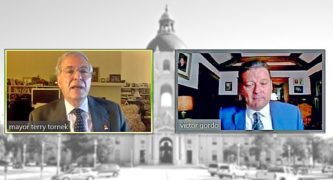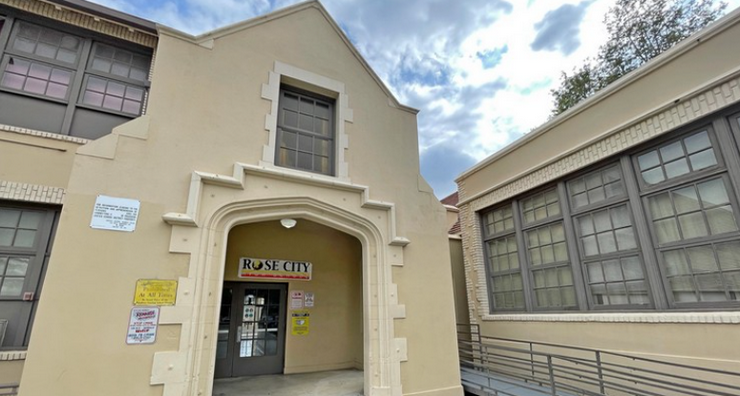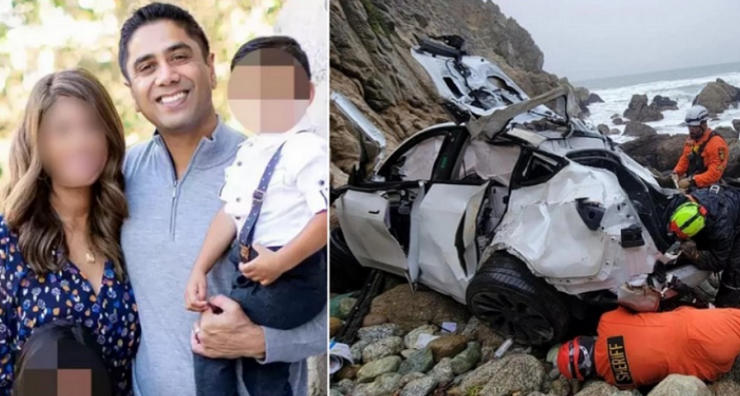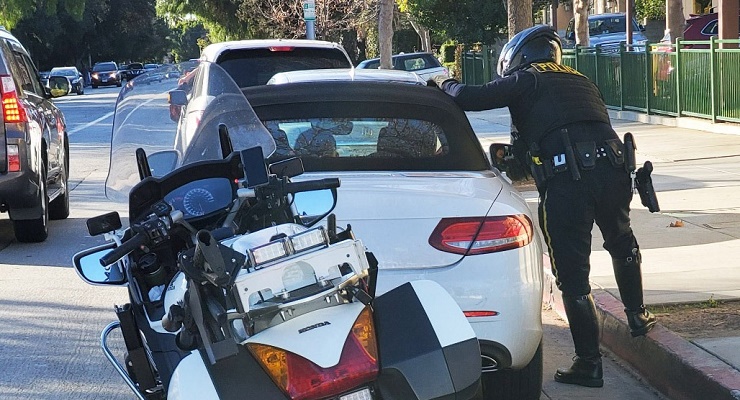
Pasadena’s mayoral debate season continued Thursday evening when incumbent Terry Tornek and his challenger on the Nov. 3 ballot, Councilmember Victor Gordo, squared off on Zoom in an event co-sponsored by the city’s NAACP branch and two other groups – with the focus on issues especially relevant to millennials, particularly millennials of color.
“For us, as young leaders – young, up-and-coming leaders – we felt it was important to really give an opportunity for those who are like us to have the platform to be able to ask questions from the millennials’ perspective,’’ said Nicole Bernard, 3rd vice president of NAACP Pasadena and one of the moderators of the 90-minute Q-and-A session with the mayoral hopefuls.
The debate’s other co-sponsors were Hood Liberation, which Bernard described as “an up-and-coming millennial organization in the Pasadena community,” and Pasadena Young Leaders, which Bernard called “a collective of black and brown millennial leaders in the Pasadena area.”
Pasadena resident and PUSD alum Jose Madera, the event’s other moderator, said, “This is a black and brown millennial-organized event by people who were born, live and work in Pasadena. We want to highlight black and brown unity in Pasadena. … We’re here to voice the concerns of black and brown millennials and to inform our community of the upcoming elections and who might lead our city government.”
Tornek and Gordo fielded about a dozen questions in all, ranging from the COVID-19 pandemic; how the city can better support the Pasadena Unified School District; the rising cost of housing in the city and region; rent control; gentrification; building trust and engagement with the Pasadena Police Department; and the recently approved Community Police Oversight Commission.
There were several simple, yes-or-no questions asked, such as the candidates’ positions on the Nov. 3 Pasadena ballot initiative known as Measure O — a $516,300,000 bond that would generate some $60 million to upgrade the PUSD’s computers and other educational technology, as well as $456,280,000 to upgrade district facilities.
Both candidates said they support passage of the measure.
Tornek and Gordo also were also asked if they support the Black Lives Matter movement, and whether they have visited the memorial that’s gone up in memory of Anthony McClain, the local man fatally shot by Pasadena police on Aug. 15 after a traffic stop.
Both candidates said they support BLM, and that they have visited the memorial.
But most of the other give-and-take between the candidates was lengthy and nuanced. Here’s a look at some highlights, issue by issue:
COVID-19
Tornek
“The pandemic, as we know, has damaged everyone, but I think it’s been most hurtful to young people among the various categories,” Tornek said. “In every area of activity, whether it’s school or job hunting or career building, or social lives, I think (millennials) have been terribly impacted. …
“And yet we all have to carry on in the face of everything that’s confronting us, and that’s true for city government as well. … And I think we’ve performed well. I think I’ve done my part as mayor in that performance.
“But the judgment of performance can’t just be on how we performed during the months of the pandemic. It has to be what’s happened over the years of service, and I think if you look at what I pledged to do when I ran for office five years ago, I think I’ve delivered on the things that I promised, including making Pasadena financially strong, supporting the school district, safeguarding the environment, protecting the quality of life in the neighborhoods and reducing crime.’’
Looking ahead, Tornek added, “We’re going to have very serious challenges going forward, and I think that helping families, restoring business activity, adjusting the way we do business – all of these are going to require the leadership that I think I’ve demonstrated.”
Gordo
“As I think through COVID and I think through leadership, and I think through even before COVID, I think you’ve seen a difference in approach of leadership, and I am worried about the millennial generation,” Gordo said.
“Sometimes I think, boy, what a generation to grow up in – in so many ways the challenges that you faced. You graduate from college during a recession. This is the most diverse generation that we’ve seen in America. In the year ’09 you start building credit in the housing market and recession hit. You’ve faced stagnant wages … I look at the savings-to-debt ratio, and that’s something that concerns me for this generation.
“I look at the recession, and then COVID … one in four of you lost jobs. This is the generation that’s been greatest hit by the crisis. … This is the generation that has had to apply most for credit relief, and there’s a reason for that – the smallest cushion going into COVID and the recession was on this generation.
“Then we start to look at the strata within your generation – the women, people of color, African-Americans, Latinos. And not just what you face but what your generation will face in lasting impacts after all of these experiences – the mental health issues. All of the issues that face society in general are highly, highly exposed for everyone, but they really come under the microscope for (millennials).
“As your mayor, I’m going to continue to bring people together to address those issues … for all of us.”
SUPPORTING THE PASADENA UNIFIED SCHOOL DISTRICT
Tornek
The mayor pointed to his role in Measure J, the 2018 initiative that directs one-third of the new taxes generated by Measure I’s three-quarter-center sales-tax increase, to the PUSD – in addition to his support for this Nov. 3’s Measure O.
“I conceived of the idea of Measure J, which delivers $7 million a year to the school district,’’ Tornek said.
“I’ve continued to have a series of meetings and have had several City Council members meeting on an ad hoc basis … to discover ways that we can work together to continue to support the school district both financially and operationally through the library, through the programs at the Rec Department runs in a whole variety of way. This is an essential part of what I’ve focused on as mayor.”
Gordo
The challenger touted his support of the 2018 ballot initiatives I and J – but also said he would push for greater wi-fi service in the city, a particular issue with students still learning remotely, and with many low-income students facing particular connectivity challenges.
“I supported Measure I and J,’’ Gordo said. “Mayor Tornek will tell you that when people wouldn’t collaborate and give money towards that, I quietly went and raised money for Measure I and J, I would say the bulk of the money. But I didn’t run around taking credit for it. I didn’t say, this was my idea, this was my effort – I did it because it was the right thing to do.”
Gordo also stressed that he’s pushed for the City Council to improve wi-fi – but hit roadblocks.
“Why that discussion has not been scheduled, you’ll have to ask Mayor Tornek, but we should jump in and partner with the school district to ensure that kids in our district don’t just have the school, but that they have real access to education,’’ Gordo said. “I think there’s an opportunity there for citywide partnership that includes wi-fi and connectivity.’’
The candidates squabbled further over the wi-fi issue.
“We’ve had several discussions at the council level,’’ Tornek said. “Councilmember Gordo should remember the presentations we’ve had on that.”
But Gordo replied, “It goes further than presentations, they’ve not been robust discussions. … We can do better. I think we have a responsibility to do better.”
COST OF HOUSING … RENT CONTROL … AFFORDABLE HOUSING
Tornek and Gordo agreed in their opposition to rent control, and in their opposition to the state-mandated Regional Housing Needs Assessment allocation, which will require the city to zone for an additional 9,409 housing units by October 2029. Both candidates called the RHNA targets unattainable, and said the city needs to address its affordable-housing shortage in other ways.
Tornek
“The reason I don’t support rent control is because rent control suppresses the production of new housing,” Tornek said. “You can’t regulate your way out of a housing shortage, you have to build additional housing, and if you impose rent control it discourages investment in new housing. It also … discourages property owners from investing in existing housing and in maintaining it in good condition. So while it sounds like a good idea and an obvious idea and it certainly provides protection for people who happen to be living in a unit when it passes, in the long term, it’s been pretty clearly established that rent control does not produce additional housing resources, and it makes the problem worse.’’
Tornek advocated boosting the affordable-housing stock with “inclusionary housing, building on city property, working with the churches to build on their property, working with the school district to try to build housing on their (unused) property. … We need to build additional housing and make sure affordable housing is part of that new production.’’
Gordo
“The rent control issue, I agree – look at Los Angeles, look at Santa Monica, look at San Francisco, who all have rent control and regrettably are some of the most expensive rent markets and for-sale markets in the entire country,’’ Gordo said.
“What do we do? In 2006, before Mayor Tornek joined the City Council, I pressed for the inclusionary housing ordinance, to set aside 15 percent of all development to be affordable. … Pasadena’s not going to construct its way out of the housing market, it’s not a Pasadena problem, it’s a regional and state and national problem. … So we need to be working with our neighbors.’’
In that vein, Gordo pushed for a more regional approach – and criticized Tornek for not joining the San Gabriel Valley Council of Governments.
“(In their first debate) Mayor Tornek said the San Gabriel Valley Council of Governments is not working (in regard to) housing, it’s not working on the issues that Pasadena cares about, they’re not relevant. (But) there are 31 cities in the San Gabriel Valley who work together on housing, homelessness, water issues – and one city is missing. The City of Pasadena, because Mayor Terry Tornek insisted that we lead our partners. And when asked at a housing forum why aren’t we working with our neighbors to bring more affordable housing to the region … he said, those cities are smaller than us, they’re not relevant. I reject that argument. … Who walks away from a tool like that?
Tornek shot back, saying, “This issue about the Council of Governments is a red herring. The reason I don’t want to join forces with them is not because they’re small, but because they typically opposed progressive housing programs, and I don’t want to be affiliate with them.’’
Tornek also stressed his service on the Pasadena Neighborhood Housing Services board from 1982 to 2000 – a organization he called “the primary affordable housing producer in northwest Pasadena.”
“My record in terms of being an advocate and an actual producer of affordable housing is, I think, unequalled,” Tornek said.
GENTRIFICATION
Gordo
“We can build on our effort on inclusionary housing, being smart about developing new affordable housing,” said Gordo. “And importantly, it ties back to opportunity, it ties back to education and ensuring that people have the opportunity to be successful and contributing members of our community.
“What am I going to do? I’m going to work with my colleagues … on the City Council … and I’m going to listen carefully to everyone in this community.’’
Tornek
In replying, Tornek tried to tie Gordo to developers – leading Gordo to snicker. It led to one of the testier exchanges of the debate.
“Gentrification is a serious issue, it’s particularly serious in Councilmember Gordo’s district,’’ Tornek said. “Some of his most aggressive supporters are people who are Realtors and brokers who are in fact making a living at gentrification. There’s nothing inappropriate about that, they need to make a living, and buying houses and improving them and flipping them is a well-established tradition in northwest Pasadena.
“The way to deal with that is to produce additional housing that people can afford. And that’s what we need to focus on. …
“There’s been a lot of discussion about concentration of affordable housing, and some on the council including Councilmember Gordo have said we’ve been building too much affordable housing in northwest Pasadena. I disagree with that – that’s where the need is, and that’s where we should be doing it.
“The kinds of affordable housing that we’re building now are not the big concentration of big projects which concentrate low-income households. They’re much smaller projects, they fit with the neighborhood, they don’t have an adverse impact, they have a positive impact.
“I think we need to build as much affordable housing in northwest as we can, (and) we then also need to focus on the ability to market that housing to people who are living in Pasadena or who have lived in Pasadena.’’
In addition, Tornek said, the city needs to “expand the Section 8 program, which we’ve continued to try to do with the federal government with no success. If we have a change in the administration in Washington next month, we may have more opportunities there. That’s the single-most impactful program we have for affordable housing in Pasadena.’’
But Gordo snapped back at some of Tornek’s points.
“It’s kind of funny to hear someone who’s spent their career as a developer … be critical of my supporters. My supporters come from every walk of life. My supporters come from every part of the city, not from a very focused community of developers.
“I’ve never said there’s too much affordable housing in northwest Pasadena and we should stop. What I’ve said is that people deserve to live in every part of this city, and that people shouldn’t be relegated to any one part of the city. …
“I say, let’s stick to the inclusionary housing ordinance and allow affordable housing to be built naturally with other development.’’
THE PASADENA PD … AND POLICE OVERSIGHT
Tornek touted his push to fast-track the still-evolving Community Police Oversight Commission, while Gordo criticized Tornek for what he said was proposing a plan that lacked independence and limited input from fellow council members and the public – charges that Tornek vigorously disputed.
Both Torek and Gordo voted in favor of the oversight plan that eventually evolved after much council debate.
Tornek
“The reason I worked so hard and pushed so hard to get the city to act on some of the suggestions made by, among others, NAACP and NDLON about community oversight is because I recognize that there’s a shortfall in terms of the relationship between the PD and some of the communities of color, that the police department is not necessarily trusted as much as it needs to be if it’s going to operate successfully and serve all the people of the city,’’ Tornek said.
“So I took a very aggressive stance, I signed the Obama Pledge … because I felt we had reached such a critical point nationally in this conversation, and that Pasadena had its own history to deal with, and so I felt we had to move fast.’’
He added, “My hope is that the community oversight group that will be appointed in very short order will really be a bridge in terms of having people from the community having responsibility on an ongoing basis to interact with the police department, to build the kinds of bridges that Chief (John) Perez has been trying to build on an informal basis but in a more institutionalized way, to bring people from communities of color … together with police officers in a non-confrontational environment.
“If people representing these communities have an ongoing relationship with the police department in reviewing their hiring practices, their training, the way that they interact with the community, that can lead to a whole new level of trust that hasn’t been able to be developed somehow between the community and the police department.”
Gordo
“Public safety is likely the most sensitive subject that any municipality deals with, because as we’ve learned … it could end in force against the very people sought to be protected, and we have to build that trust,’’ Gordo said.
“When the issue was front and center a few months ago, instead of building trust and engaging the community, Mayor Tornek and one other councilmember (John J. Kennedy) came back with what they called the Kennedy-Tornek proposal.
“You know why I objected? One, because that’s not really trust – cutting out half of the (Public Safety) Committee and then most of the City Council and importantly the community out of the discussion was wrong. … Two, what they came back with was, no independence, and I said that — I said, this is insufficient. We need real independence because we need to build trust.’’
The plan subsequently evolved to call for an 11-member oversight commission and independent auditor – both working under the city attorney’s office rather than the city manager, who oversees the police department.
Gordo said that his and Vice Mayor Tyron Hampton’s voices ultimately put more independence, and more teeth, into the commission.
“That’s why we ended up where we ended up,’’ Gordo said. “We ended up there because I spoke out loudly … together with the Vice Mayor, Tyron Hampton.’’
But Tornek replied that “the narrative he (Gordo) suggested, the history is not accurate.’’
“Nobody was shut out of that process,’’ Tornek said, pointing to his conversations NAACP leaders, plus the estimated 700 people who sent in comments to the Public Safety Committee and hundreds more who sent letters to the full council.
“This was not an exclusive backroom process, it was an incredibly participatory process, it’s just that it was consolidated into a short period of time because we felt a sense of real urgency,’’ Tornek said. “We felt that we needed to take action swiftly.’’














 0 comments
0 comments


